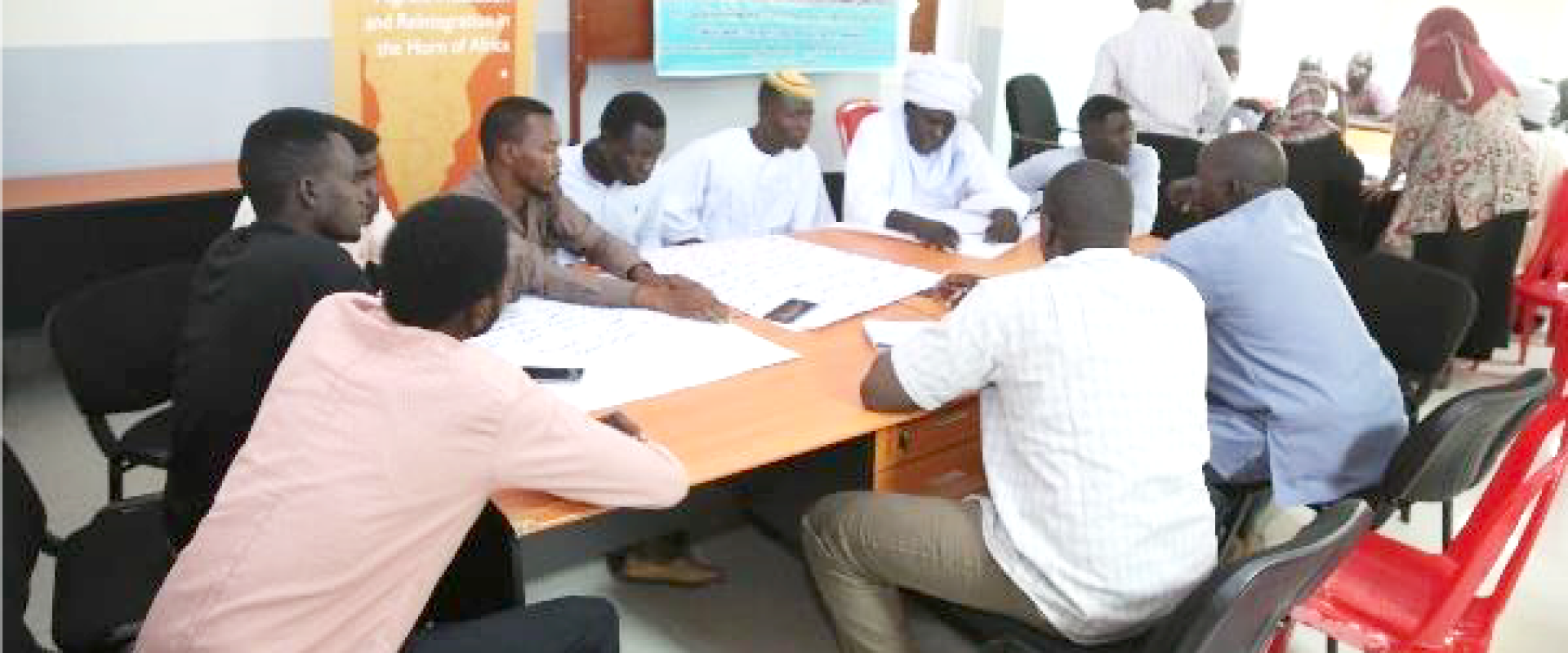Spotlight on Identified Areas for Migrant Return in Sudan
West Darfur – Sudan has a complex and diverse migration profile as a source, transit and destination country at the centre of multiple migration routes. The country hosts several migrant populations from neighbouring countries, including seasonal workers. Europe is among the target destinations for Sudanese nationals, along with some of the migrants in the country, many of whom intend to go through conflict-ridden Libya.
According to the IOM Displacement Tracking Matrix (DTM)’s report covering March to May 2019, Libya hosted at least 641,398 migrants from more than 39 countries. Sudanese migrants accounted for 11% of the migrant population, after Nigeriens (21%), Egyptians (15%), and Chadians (15%).
Many of those leaving Sudan in search of a better life elsewhere experienced varying degrees of hardship and abuse on their journey. Some of them ran into unforeseen problems – such as detention in Libya - and approached the International Organization for Migration (IOM) for assistance in returning to their communities of origin.
To ensure a holistic and sustainable reintegration of migrant returnees in Sudan, IOM organised a community needs identification workshop in Geneina, West Darfur, from 10-11 September 2019. The activity was part of the EU-IOM Joint Initiative for Migrant Protection and Reintegration in the Horn of Africa.
The aim of the workshop was to identify key community-initiated interventions that promote the reintegration of returnees and also supports efforts towards finding lasting solutions to the strengthening of community resilience in identified key areas of return, such as Geneina in West Darfur, Um Shalaya in central Darfur and Kreinik.
Under the EU-IOM Joint Initiative, IOM Sudan provides support to migrant populations stranded along migratory routes, focusing not only on facilitating their safe return and individual assistance upon arrival, but also their successful reintegration into their communities of origin.
The EU-IOM Joint Initiative seeks to complement individual reintegration assistance with community-based interventions in order to boost the success of migrant returnees as well as promote social cohesion in the communities of return.
The Darfur workshop was co-funded by the Joint State Liaison Functions (SLF) in support of the African Union-United Nations Hybrid Operation in Darfur. It brought together about 60 participants comprising of local authorities, community leaders, host community representatives, as well as Sudanese migrant returnees assisted by IOM.
A key speaker was Abdellah Ahmed Mohamed, the Humanitarian Aid Commissioner in West Darfur, who remarked that: “The reintegration of the returnees in their communities is a joint responsibility where the government, as well as organisations, the hosting communities and the returnees play a major role towards the social cohesion and stability.” Mohamed’s office links humanitarian and development organisations with local communities.
Among the participants was Abdel Kareem Mohamed Abdellah Omda, a community leader from Um Shalaya, who welcomed the training, saying: “This workshop is very unique as it brought together three communities to identify their needs with the support of the local authorities from the concerned ministries such as Health, Agriculture, Animal Resources, water and sanitation, Education”.
At the end of the workshop participants came up with a list of needs covering a wide range of development areas such as health, education, agriculture and water and sanitation. The process of identifying these needs followed a thorough discussion among participants in which they identified locations for programme implementation and the potential number of beneficiaries to be targeted.
